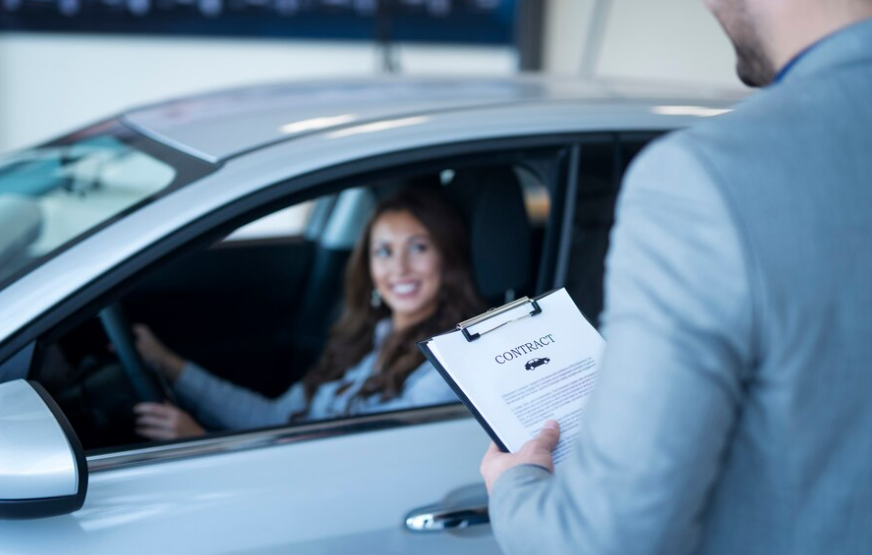Getting a dealer license for car auctions is a great way to start a business in the automotive industry. Whether you’re looking to buy and sell cars for profit or wanting to participate in wholesale auctions, obtaining a dealer license is a key step. The process can vary depending on your location, but there are general guidelines that most states follow. Here’s a comprehensive guide to help you navigate through the steps of acquiring your dealer license for car auctions.
Step 1: Understand the Requirements
Before diving into the paperwork, it’s essential to familiarize yourself with the requirements for getting a car dealer license. Most states have specific rules, but here are the typical qualifications:
- Age and Legal Requirements: You usually need to be at least 18 years old, a legal resident of the state, and have no serious criminal convictions.
- Business Location: A physical location for your dealership is often required. This could be a commercial space with adequate parking and storage for vehicles.
- Business Structure: You must decide if you’re going to operate as a sole proprietorship, partnership, or corporation.
- Sales Tax Number: You will typically need a sales tax permit to collect sales tax from customers.
Check with your local Department of Motor Vehicles (DMV) or the state’s motor vehicle department to find out the specific requirements for your area.
Step 2: Choose the Type of Dealer License You Need
There are different types of dealer licenses depending on the nature of your business:
- Retail Dealer License: This allows you to buy and sell cars to the general public.
- Wholesale Dealer License: If you want to purchase vehicles only from auctions or other dealers to resell to other businesses (not the general public), you’ll need this type.
- Auction License: If you’re planning to run a car auction, a separate license is required.
Make sure to select the right type based on your goals. If you’re only interested in buying cars from an auction to sell them, you’ll likely only need a wholesale dealer license.
Step 3: Obtain a Business Location
As mentioned earlier, most states require a physical location for your dealership. The location must meet zoning laws and often needs to be approved by your local DMV or government authorities. Here are a few things to consider when choosing a location:
- Office Space: You may need to have a small office where you can conduct business and handle paperwork.
- Vehicle Display and Storage: Depending on the type of license, you might need adequate space to display or store vehicles. Some states also require a certain number of vehicles to be present at your location.
- Compliance with Zoning Laws: Your location must comply with local zoning laws, which can vary greatly by area.
Check with your local zoning department to ensure your location meets the criteria for operating a car dealership.
Step 4: Complete the Dealer License Application
Once your location is ready, it’s time to complete the dealer license application. This process will include:
- Personal Information: You’ll be asked to provide your personal information, such as your name, address, and Social Security number.
- Business Information: You’ll also need to provide details about your business, including the type of business entity (LLC, corporation, etc.), business name, and address.
- Background Check: Some states may require a background check to ensure you don’t have a criminal record, especially for felonies related to fraud or motor vehicle crimes.
- Fees: Be prepared to pay application fees, which can vary widely depending on your state. These fees often cover administrative costs, background checks, and processing of the license.
Make sure to double-check all the information you provide to avoid delays or complications with your application.

Step 5: Complete Pre-Licensing Education (If Required)
In certain states, you may be required to complete pre-licensing education or training before applying for your license. This training often covers:
- Dealer Laws and Regulations: You’ll learn about the legal aspects of being a car dealer, including consumer protection laws, sales tax obligations, and contract requirements.
- Dealer Practices: The training will also address best practices for buying, selling, and financing vehicles.
- Business Operations: You may receive guidance on how to run your dealership efficiently and profitably.
Make sure to check with your local licensing authority to see if this is a requirement for your state.
Step 6: Apply for a Surety Bond
Many states require you to obtain a surety bond as part of the licensing process. A surety bond acts as a form of insurance for your customers, ensuring that you will follow the rules and regulations of the industry. If you fail to comply with the law, the bond can be used to cover financial damages.
The amount of the surety bond required varies by state and the type of license you’re applying for. Typically, the bond can range from a few thousand dollars to tens of thousands, depending on the size of your business and location.
Step 7: Submit Your Application and Pay Fees
Once you have completed all the required steps, submit your completed application to the DMV or your state’s motor vehicle department. Be sure to include all necessary documentation, such as proof of your location, surety bond, and completed pre-licensing courses (if applicable).
Most states will charge an application fee, which can range from $100 to $500. After submission, you’ll generally need to wait a few weeks for your application to be processed. If everything is in order, you’ll receive your dealer license.
Step 8: Maintain Your Dealer License
Once you’ve obtained your dealer license, it’s important to stay in compliance with state laws. This could involve renewing your license annually, keeping up with any changes in laws and regulations, and maintaining your surety bond.
Additionally, you’ll need to keep proper records of your vehicle sales, maintain insurance for your business, and continue following all laws related to advertising and sales practices.
Conclusion
Securing a dealer license for car auctions can be a detailed process, but it’s a crucial step in building a successful automotive business. By following these steps and ensuring you meet all requirements, you can navigate the application process smoothly. With your dealer license in hand, you’ll be able to access wholesale car auctions, purchase vehicles for resale, and grow your business in the automotive industry.





